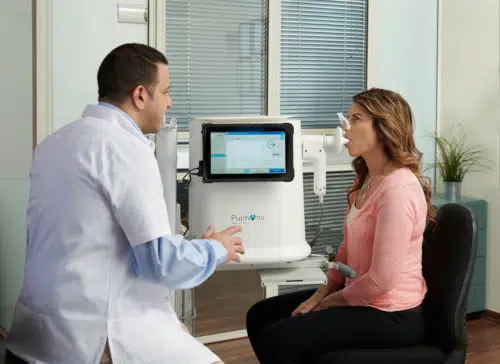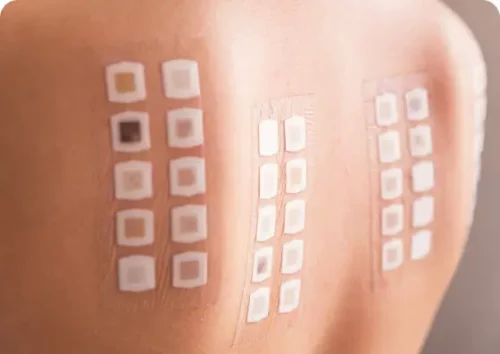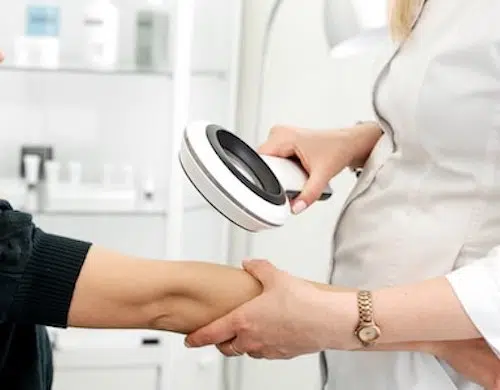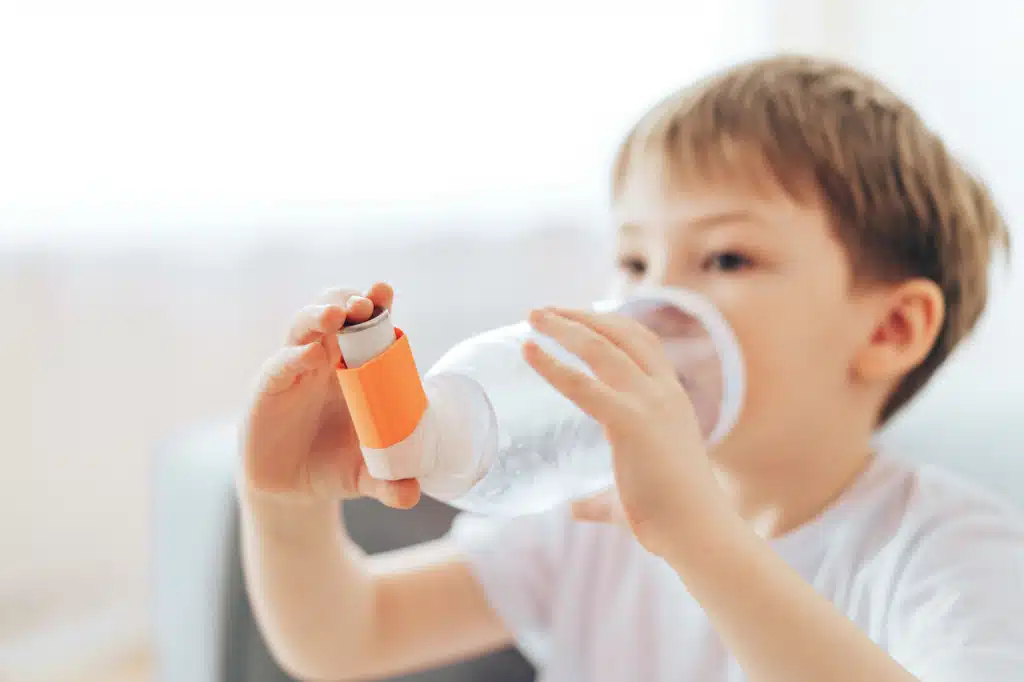
Pulmonary Function Tests
These tests help your provider diagnose and monitor asthma symptoms by measuring your overall lung health.
learn more go back
go back
As another year comes to a close, most of us are scrambling to cram in much-needed doctors’ appointments before our deductibles reset with the new year. But it’s also important to use money lingering in your health savings account (HSA) or flexible spending account (FSA). FSAs have a use-it-or-lose-it structure, meaning any money left in the account goes back to your employer. Which you likely don’t want! Unfortunately, this is a common practice. In fact, those with an FSA let go of an estimated $7.2 billion between 2019 and 2020, according to Money.
That’s why we have a plan for you to help you get allergy and asthma medications, treatments, and products and services.
Many Americans use either an HSA or FSA to save on taxes and help pay for specific prescription, medical, dental and vision expenses. The big difference in the two accounts comes down to how they’re managed:

Pulmonary Function Tests
These tests help your provider diagnose and monitor asthma symptoms by measuring your overall lung health.
learn more
Allergy Patch Testing
Allergy patch testing is a common test used to confirm the cause of allergic contact dermatitis.
learn more
Immunotherapy
Immunotherapy is an ideal choice for patients with severe allergies or those unable to avoid exposure to an allergen.
learn more
Skin Allergy Testing
This is less invasive than blood tests and is a good alternative for patients who don’t like needles.
learn moreYes, you can use HSA and FSA money to buy prescription and non-prescription allergy and Asthma medications, as well as other over the counter (OTC) remedies. This is a more recent development established in March 2020 as part of the Coronavirus Aid, Relief and Economic Security Act (also known as the CARES Act).
Several over-the-counter allergy and asthma treatments and most prescriptions are FSA or HSA eligible. These treatments and products can include:

Air purifiers such as HEPA filters can be helpful for the bedroom and indoor living spaces for allergy sufferers. Consider this as an additional tool to fight allergies. It’s possible to buy a humidifier or air purifier with your HSA or FSA card, but you’ll need a letter of medical necessity, from your healthcare provider. This type of documentation justifies your need for the humidifier or air purifier.
Are humidifiers actually beneficial though? Certainly, humidifiers can benefit asthmatics! It comes down to having the proper humidity level. The humidity level in your house, like other things, must be regulated and should be between 30% and 50%. When humidity is less than 30%, the air is too dry (producing a host of issues), and when humidity is more than 50%, the air is too humid, allowing mold and mildew to thrive.
However, only if you have complete control over the interior humidity level. Humidifiers can help excessive dryness in dry climates. Humidifiers can be tricky and need proper maintenance and operation to avoid the possibility of contamination. Speak with an AllerVie Health provider to see if a humidifier is right for you.

Our team of writers, editors, and medical experts goes over each article carefully to make sure the information is correct and that only reliable sources are used.
We regularly check to see if the info in this article matches up with the latest scientific research and expert advice so that we can give you the most up-to-date information. See list of trusted resources here.
Stocking up on allergy medication and products services is a great idea — especially if you have money to lose on the line. But having a dedicated health care professional on your side to guide you through the highs and lows of navigating allergies is priceless for your health and well-being. AllerVie Health’s board-certified allergists and immunologists are committed to helping you reach — and keep — your best health and quality of life.
Make an Appointment